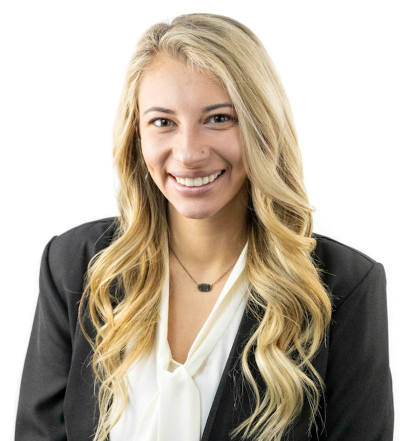"I could not have gotten through residency without these people."
I sat in our EMRA suite at ACEP 2024 Scientific Assembly, tearful. I am not a person who cries often. This conference taught me just how much this work and these people mean to me. I would not be the same physician without them. Being on the EMRA Board this past year has been an unexpected blessing, and one of the biggest reasons is the other board members and residents I serve with. We sat in the suite talking with each off-going board member, reminiscing on memories of hard and fun times together and simply taking a moment to recognize the strengths and contributions of each person to this organization and to our lives.
My entire residency class came to ACEP, as the third-years at our program do annually, so the week was a time of learning - but also of friendship and celebration for how far we have come. Residency is a busy time, so it is not often, aside from our class days off, that our entire class is at an event together.
As I am acutely aware of the time counting down until the end of my residency training, I recognize more so than ever before the power of a cohort. Throughout our education, we have always been part of a group like this: a group of pre-medical students, a group of medical students, and then a group of residents. At the end of it, we will finally go our separate ways, no longer trainees in medical education for the first time. There is something, to me, that makes the residency cohort particularly special and influential.
Throughout the final year of residency, I've recognized how my thought process has changed regarding the culture at work, my goals and my future, and especially my patient care. I see myself noticing things I hadn't before. "How will I handle this situation in the 'REAL' world next year?" is a question I think about daily. What kind of shop do I want to work at? What kind of physician do I want to be?
Every emergency department I've worked in has truly had an elite workplace culture. It is a unique and special place in the hospital, where the formal hierarchy I see in other departments turns instead to teamwork and family. Techs, nurses, physicians – these are all people I've learned an immense amount from over the years.
What I'd like to focus specifically on is camaraderie during residency and how much we truly learn from those we sit beside every day, our co-residents. It's more than post-shift drinks and elite spotify playlists on shift. It's every moment in the department where we see what makes our colleagues as great as they are.
I recall early in my first year of residency, we entered hurricane season in Florida. What this often means for residents who live in these areas is the separation into hurricane teams, some who may stay in the hospital until the storm passes. During the hurricane, some unhoused citizens came to the hospital for shelter. I stood watching one of my upper level residents grab a razor and care for a man by giving him a haircut (and honestly, a pretty decent one at that). I walked up to him, asking him what he was doing. He said, "I saw something I could do to help, so I did it." I've thought about that moment several times over the course of my residency, because sometimes, the things we can do to help aren't medical care at all.
I saw a patient a few months ago come into the department, as I was supervising one of the lower level residents. The patient had overdosed while attempting to dye her hair, and received naloxone with EMS. She was still quite sleepy and was being observed in the emergency department. I noticed she still had bleach in her hair. I grabbed one of the techs, and we took the patient to the decontamination room to wash the bleach out of her hair. For those of you who do not bleach your hair, leaving it on your hair too long can definitely destroy your hair and make it all fall out. My co-resident came up to me, asking what I was doing. I looked at her with a smile, remembering that hurricane haircut, and said, "I saw something I could do to help, so I did it." Whether that made any kind of difference in the patient’s life is probably debatable, but sometimes, I think the little things like that are the things the patients notice most from us as physicians.
The years of residency training test each of our resilience, without a doubt. Over the past 2.5 years, I've learned a lot of emergency medicine (and still have a lot to go!). I've also learned something else: what my peers are made of. Amid the craziness on each shift, I look at each of my co-residents and see traits I wish to develop in myself. I have a lot to admire in each of my co-residents: their strength, adaptability, leadership, generosity, and so much more.
I am incredibly proud to be a member of EMRA. Honored to be a part of this cohort, this specialty, this amazing group of people working hard every day to make a difference in emergency departments across the country.
I encourage each of you to take a moment next time you are on shift, at a conference, or in a lecture - just look around and pause at the greatness sitting in the chairs next to you.



